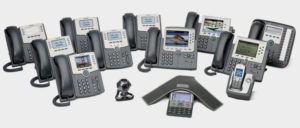A high quality, cost effective telephone system is an essential requirement for any business with two or more employees. In dealings with customers, clients, suppliers and partners, the telephone is arguably your company’s most essential communication device. A reliable telephone system that allows your staff to communicate with customers, clients, and indeed each other, without hindrance, delay or complications, is vital for the smooth running of your business. When it comes to choosing a business phone system for your company, what at first glance seems like a straightforward purchasing task, can in fact become a complex and time consuming process.
There are so many different kinds of office telephone systems available that it is very important that before you choose a supplier, you have thought carefully about your company’s exact telephony needs as well as future requirements that allow for the potential expansion of your business. Following this, it pays to make yourself aware of the kinds of systems currently on the market. The various kinds of technology behind different systems means that there are numerous extra features and capabilities, and what is perfect for one type and size of business, may be completely inappropriate for another.

Our telephone systems guide explains all the most necessary details so that you can find the best deal for your company by comparing up to four competitive quotes from trusted suppliers, armed with the knowledge you need to make an informed decision. By learning more about the kinds of telephone system available, and getting more than one quote from leading suppliers, you will be able to equip your business with a system that will play an integral role in the success of your company’s external and internal communications.
With the right telephone system installed, your company will benefit from:

The telephone is the most direct way a customer can contact your company. By sending an email or writing a letter a customers has no assurance of when their enquiry will be dealt with, or who will be responsible for getting it done. Being able to speak to the right person on the other end of a phone line means that your customers can be sure that not only are you able to respond to their queries and concerns, but that your company prioritizes customer satisfaction. The right integrated telephone system will provide your business with the most effective means of being open and responsive to your customers – an invaluable tool for customer service that will help to enhance the good reputation of your business.
A telephone system that is perfectly suited to the size and type of your business will be able to play a significant role in improving inter-company communications. Conference calls, paging and messaging systems are all features that could help your staff deal with each other quickly and effectively. Depending on your business’ size and specific requirements a range of features and capabilities can make the day to day running of your company’s operations smoother and more efficient.

The alternative to a telephone system is to have a single phone line. This means that when someone calls, everyone’s phone rings and who answers it depends on whosoever is available at the time. For most companies, even small businesses, this is by no means an ideal situation. A single phone line in an office that has more than one or two people working in it is inefficient because it means the caller rarely, if ever, reaches the best person to deal with their enquiry. Time is wasted transferring calls, taking down messages that may or may not get through to their intended recipient, and explaining to disgruntled clients why so and so is not available at present. A telephone system that suits your company’s size and specific requirements will eliminate all of these problems, and help to make sure that your staff’s time is never wasted.
It might be that conference calls could help your team reach important decisions more effectively, or a paging function would allow staff to get quick messages to one another, or an intercom that could aid instant company-wide communications; the fact is that telephone systems come with a range of additional capabilities that could help give your company the edge over its competitors. A telephone system that has all the specific functions that your business needs will give your staff the opportunity to work quickly and effectively, performing above and beyond your expectations.
By implementing a telephone system, and moving away from single phone lines, you will be simplifying and streamlining your company’s communications expenditure. This will help to trim overall costs and cut down on the unnecessary administration caused by having to process individual telephone invoices. It can also mean that you will be better able to oversee calling patterns and pick up on any excessive or inappropriate telephone usage, such as unauthorised personal calls.

There are various different types of telephone system available, and the right system for your company will depend on a few key factors. Firstly, think about how many phone lines you will need to use; some systems are most suitable for less than ten lines, while others can handle forty and more different lines. When considering this point, don’t forget the possibility of your company expanding in the future; the number of phone lines you need this year may be considerably different in a few years’ time. Also, think about the additional features that your staff are likely to need. Here is an introduction to each of the main types of telephone system, and their additional capabilities.
Private branch exchange (PBX) systems are usually used by companies that need a large number of extensions (i.e. over fifty). Due to their comparative complexity, a PBX system will need to be installed by an engineer, but the range of features and capabilities you can expect is considerable, including extension dials, conference calls, fax to email, transfers between extensions, automatic call answering and automatic transfer to voicemail.
Voice over Internet Protocol (VoIP) is a system that uses the internet rather than traditional telephone lines, and is an increasingly popular choice of business telephone system because of the cheaper operating costs. Furthermore, because calls take place over the internet, there is no call charge. The only expense is the cost of the broadband connection. Another advantage they have over PBX systems, for example, is that they are easy to use, and can be installed without an engineer. Although standards are improving, one downside of VoIP systems up to now has been comparatively poor sound quality.
A very popular choice with small to medium businesses, Key systems are suitable for companies that don’t need in excess of 40 lines. The system works by using a Key System Unit (KSU) that gives the telephones additional capabilities that don’t exist on single phone lines. A typical Key system will offer users conference call facilities as well as call logging and barring, paging, and even the ability to record phone calls. An engineer will most likely be required to install a Key system.
This kind of system is suitable for businesses that require fewer than ten phone lines, and don’t need any of the additional capabilities offered by Key and PBX systems. One advantage of this system is that the phones are portable, although there is the possibility of cross-talking. Straightforward, and comparatively limited, a KSU-Less system is low cost and easy to install – no engineer is required.
The type of telephone system that is most suitable for your company will depend on how many lines you need, or can envisage needing, and the additional capabilities required. The costs of purchasing and installing the different types of system vary considerably. As the most basic option, a KSU-Less system is the cheapest, but it is worth bearing in mind that telecom companies do not tend to provide installation or maintenance for KSU systems.
Key systems are priced between KSU-Less and PBX systems, and typically can be installed for a few hundred pounds. Again, prices vary according to the number of extensions and features required.
The most expensive type of system to purchase and install is a PBX system, as these are capable of handling a large number of phone lines, and have the most additional features. Prices can start from a few hundred pounds for a small system with fewer additional capabilities and go up into thousands of pounds for more complex and sophisticated systems.
A VoIP system requires most of the same hardware as its PBX equivalent, and installation costs are also similar. However, with no call charges (apart from broadband costs) many companies consider VoIP systems to be the most cost effective.